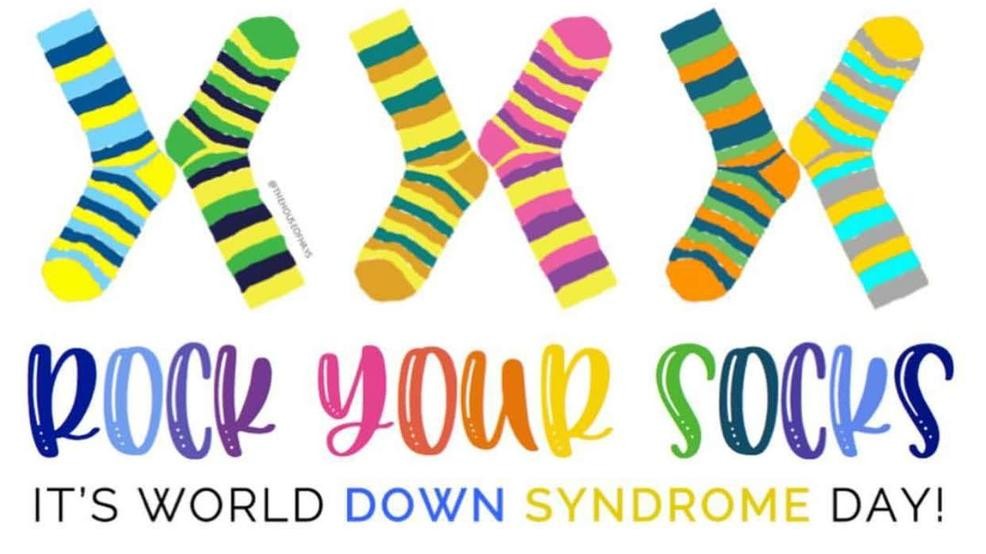Down syndrome or Trisomy 21 is a genetic syndrome marked by a 3rd copy of the 21st chromosome. This additional genetic material alters the course of development and causes the characteristics associated with Down syndrome (ndss.org). There are common physical traits associated with those that have Down syndrome including low muscle tone, small stature and an upward slant to the eyes. BUT it’s important to remember that each person with Down syndrome is different and may or may not possess these common characteristics, typically someone with Down syndrome carries more common characteristics with their parents and family members.
March 21st is World Down syndrome day because it’s the 21st day of the 3rd month to signify the uniqueness of the 3 copies of the 21st chromosome. On this day every year we celebrate those with Down syndrome, share awareness about all the things people with Down syndrome CAN do and fight for more opportunities and inclusion (i.e. quality education, good health care, a paying job, autonomy in making decisions and a voice).
I became a speech pathologist because of my experiences with people with Down syndrome, in particularly my youngest sister, Christina. I saw at a young age the importance of speech and language therapy in her life. Our family attributes Christina’s ability to communicate verbally to her speech therapist she saw from age 3-22 years old.

It’s important to remember that every child is different and comes to us with a unique set of skills and difficulties. Speech and language therapy looks different for everyone despite maybe having the same diagnosis. Typically, children with a diagnosis of Down syndrome may have feeding, swallowing, speech and/or language difficulties and can benefit from skilled speech and feeding therapy. It’s important to find a therapist that is trained and skilled in pediatric feeding and swallowing if there are feeding concerns and a therapist trained in pediatric speech and language disorders if there are speech or language concerns. Although both fall under the scope and practice of a speech pathologist, they are different and not all therapists have experience in both areas, it’s important to ask your therapist their level of experience if you have concerns!
Our main goal of speech/language therapy is to give each child the skills to communicate with their peers, family members and teachers. Each person has a voice with unique thoughts, dreams and aspirations even if they have difficulty communicating it. At Gro, our role is to use total communication strategies to help each person express themselves. This can look different for each person and we take time to develop communication skills, not just speech skills.
Sometimes this looks like verbal speech and other times it looks like augmentative and alternative communication (AAC) strategies. Our end goal for therapy is to give everyone an opportunity to meaningfully communicate with others despite their disability. There are many different forms of AAC, which will be explained more in depth in another post but common forms include sign language, writing, picture exchange communication systems (PECS) and a speech generating devices (i.e. applications that allow a person to communicate via electronic voice generation).
As a speech pathologist it is our job to help a family and child every way possible by providing a robust, language rich environment that supports language and communication development in all forms. No one uses verbal speech to communicate all the time (think of how often we communicate via text or facial expressions) and it’s important to support, nourish and develop ALL types of communication for our children.
In celebration of those with Down syndrome please join us in wearing your crazy socks today! The crazy or mismatched socks tradition is meant as a conversation starter, when people see your mismatched socks and ask why, you can take a minute to explain the significance and share acceptance and inclusion of people with Down syndrome.